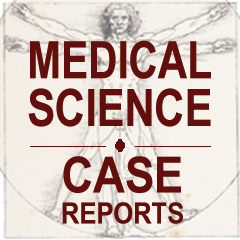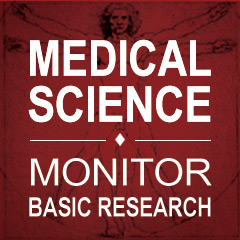Psychosis Secondary to Sheehan’s Syndrome
Marco Bustamante-Bernal, Miraie Wardi, Carlos E. Rodriguez-Castro
Med Sci Case Rep 2015; 2:10-12
DOI: 10.12659/MSCR.893942
Available online: 2015-03-14
Published: 2015-03-14
BACKGROUND:
The differential diagnosis of psychosis in an adult is vast and includes both psychiatric and medical conditions. Psychosis secondary to endocrine abnormalities is well recognized. Sheehan’s syndrome is characterized by adrenal and pituitary insufficiency secondary to massive hemorrhage during or after delivery. The association between hypopituitarism and psychosis has been infrequently reported.
CASE REPORT:
A 59-year-old woman had a 1-month history of intermittent visual hallucinations associated with aggressive behavior, paranoia, and self-mutilation. She had a medical history of hypothyroidism, adrenal insufficiency, hyperlipidemia, presumed Alzheimer’s disease, and a severe vaginal bleed requiring multiple blood transfusions and hysterectomy after the birth of her second son 29 years prior to admission. Laboratory data showed evidence of hypothyroidism and hypocortisolism. She was started on IV and PO high-dose levothyroxine and IV steroids, and was discharged with maintenance levothyroxine and steroids. Follow-up after 3 weeks revealed improvement in mental status, increase in energy, and decrease in frequency of visual hallucinations.
CONCLUSIONS:
Psychotic symptoms may develop acutely or persist over a long period of time prior to being recognized as symptoms of endocrine dysfunction. Hypopituitarism as a cause of psychosis can be overlooked because psychiatric and physical symptoms associated with hypopituitarism can be nonspecific. In this context, clinicians should pay special attention to risk factors and clinical findings that suggest endocrine abnormalities, because the early recognition of symptoms and the initiation of hormone replacement therapy may lead to the resolution of symptoms prior to the onset of delirium, psychosis, or coma.
Keywords: adrenal insufficiency, Affective Disorders, Psychotic, Hypopituitarism, Hypothyroidism





